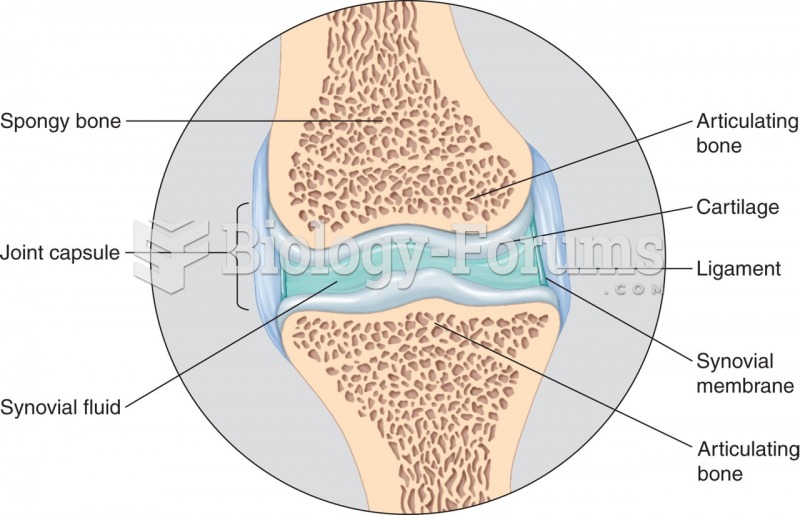This topic contains a solution. Click here to go to the answer
|
|
|
Did you know?
Though “Krazy Glue” or “Super Glue” has the ability to seal small wounds, it is not recommended for this purpose since it contains many substances that should not enter the body through the skin, and may be harmful.
Did you know?
Blood in the urine can be a sign of a kidney stone, glomerulonephritis, or other kidney problems.
Did you know?
The horizontal fraction bar was introduced by the Arabs.
Did you know?
People about to have surgery must tell their health care providers about all supplements they take.
Did you know?
The familiar sounds of your heart are made by the heart's valves as they open and close.







